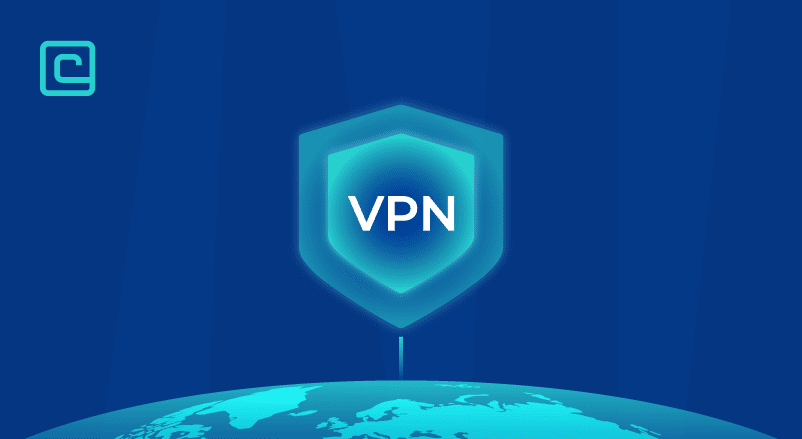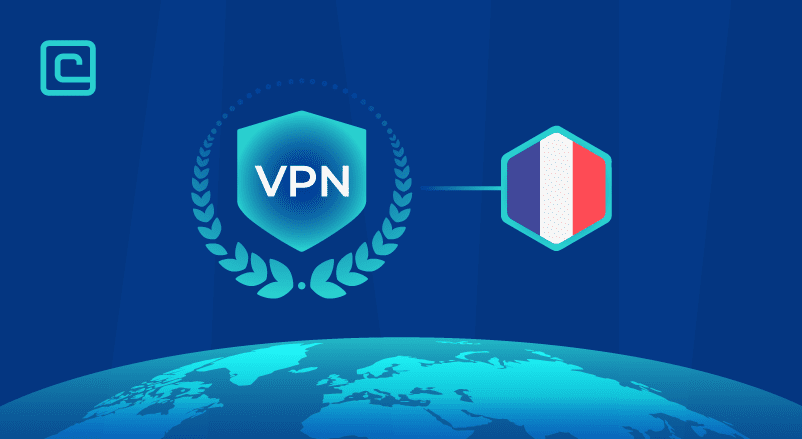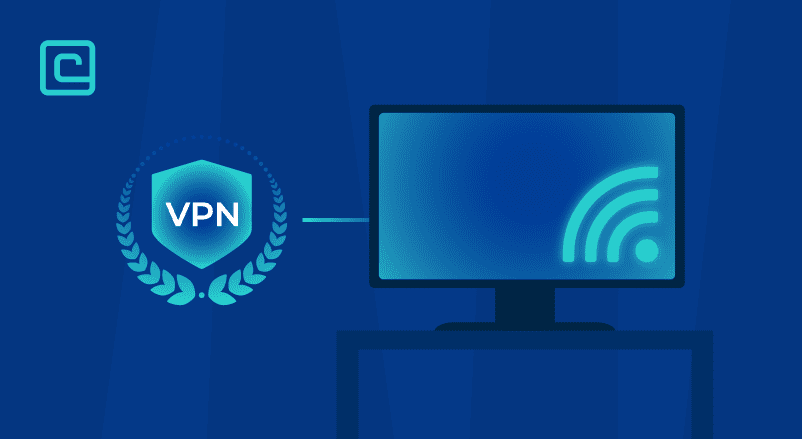What is Double VPN? Should You Use It? 5 VPNs with MultiHop

- Double VPNs are perfect for those who value privacy. They hide your real IP address behind two VPN servers, adding extra security.
- Not everyone needs double VPNs. If you prioritize fast connection speeds, you might not want to use two VPNs at once.
- To get double encryption, you can sign up with a VPN that offers this feature. Or, you can use a virtual machine. Another option is to use one VPN on your router and another on your device.
A double VPN tool offers double the encryption of a single VPN. It adds an extra layer of security by hiding your IP address behind two servers. This advanced feature is rare among VPN providers.
But, is a second layer of encryption even necessary for most users? In this detailed post, I’ll explore the benefits and drawbacks of double VPN. I aim to help you decide if double VPN settings are right for you.
Best VPNs with Double VPN and Multi-Hop feature:
- NordVPN – the best overall VPN service with a Double VPN feature
- Surfshark – Multi-Hop feature available with unlimited connections
- AtlasVPN – Great cheap VPN choice with MultiHop+
- Private Internet Access – Great alternative choice
- ProtonVPN – freemium VPN with Secure Core feature
Test Your VPN Knowledge – Take A Quiz!
What Is A Double VPN?
A double VPN routes your Internet traffic through two or more VPN servers. This adds an extra layer of encryption and anonymity. It creates a chain of VPN connections.
Your data is encrypted and passed through the first server. Then, it’s encrypted again and routed through the second server. This makes your connection safer than a standard one.
A double VPN enhances privacy and security. It adds an extra barrier against surveillance or eavesdropping. It’s a way to protect your online activities and keep your identity hidden.
How Does A Double VPN Work?
A double VPN works by establishing a regular connection to the first VPN server. This connection encrypts your Internet traffic and masks your IP address. It ensures a secure and private connection.
Once connected, your encrypted data is sent to the first VPN server. The first server decrypts it and routes it to the next destination.
Your traffic is then encrypted again and sent through a second VPN connection. This creates a “tunnel within a tunnel” setup.
The encrypted data is transmitted through the second VPN connection to the second VPN server. The second server acts as the final exit point for your traffic.
Once your data reaches the second VPN server, it’s decrypted and sent to its final destination. The destination server sees only the second VPN server’s IP address.
The response data is then encrypted by the second VPN server and sent back through the second VPN connection to the first VPN server.
The first VPN server receives the encrypted response data. It encrypts it with the original encryption key and sends it back to your device through the initial VPN connection. Your device decrypts the data, allowing you to access and view the requested information.
Pros and Cons of Using Double VPN
To understand double VPN, let’s look at its benefits and drawbacks. Here are the biggest pros and cons of double VPN:
The Advantages of Double VPN
A double VPN feature offers many benefits, including extra security. Here are the most significant perks a Double VPN adds to your connection:
- Stronger Security — Double VPN encrypts your data twice, making it tough for hackers to get your info. This is great for public Wi-Fi or untrusted networks.
- Stronger IP Protection — Your data goes through two servers, making it hard to trace your IP address. This includes your Internet Service Provider.
- Defense Against VPN Server Compromises — If a VPN server gets hacked, a double VPN adds extra protection. Even if the first server is compromised, the second server hides your IP.
- Stronger Geo-Spoofing — Double VPN servers in different countries make it hard to find your location. This is because your traffic is mixed and masked.
- Mix Different Protocols — You can use both TCP and UDP versions of OpenVPN. This gives you extra security compared to using just one version.
The Disadvantages of Double VPN
Double VPN sounds great for security, but there are downsides. Here are the main cons:
- Increased Latency — Double VPN means slower Internet speeds. This is because your data goes through two servers. It’s a big issue if you use Tor over VPN.
- Limited Availability — Double VPN is not as common as single VPN. You might have fewer server choices, limiting your options.
- Limited Server Choice — You’ll have fewer VPN server options with double VPN. Even with thousands of servers, only a few will support double VPN.
Are Multi-Hop and Double VPN The Same?
Yes, multi-hop VPN and double VPN are the same. They both mean routing your traffic through multiple servers for more privacy and security.
Some VPNs call it double VPN, others multi-hop. But, as long as it uses double encryption, it doesn’t matter what it’s called.
Is a Double VPN Safer Than a Regular VPN Connection?
A double VPN adds more security than a regular VPN. Regular VPNs already offer good privacy and security. But, double VPN provides extra protection, which is great for high-risk situations or those needing advanced anonymity.
Double encryption is safe because of how it splits IP addresses. The first server knows your real IP but not the destination. The second server knows the destination but not your IP.
But, connection safety depends on many factors, not just double or single VPN servers.
The VPN should have many privacy features. It should have a no-logs policy and be in a privacy-friendly place. It should also have a kill switch and use RAM-based servers.
What Are Double VPN Servers Good For?
Most people don’t need double encryption for their VPN. But, there are times when it’s very useful.
For example, when you’re using public Wi-Fi, it’s great to keep your IP address private. This is also true for people in countries with strict rules.
Journalists and those covering sensitive topics also benefit from double VPNs. It helps keep them safe from those who might try to harm them.
For those handling sensitive data, double VPNs offer extra security. They make it harder for others to get your data. This gives you peace of mind. It’s like having an extra layer of protection.
When You Shouldn’t Use a Double VPN Server Connection
There are times when a standard VPN is better than a double VPN. This is when you need fast connections and good performance.
For example, if you’re into gaming, streaming, or torrenting, a standard VPN is better. Double VPNs can cause lag and slow down your activities.
Streaming and gaming need fast speeds. Double VPNs can make these activities slow and hard to enjoy. It’s better to use a single server for these activities.
For torrenting, using a single server is best. Choose servers optimized for P2P traffic from a reputable VPN.
What Is The Difference Between Double VPN and VPN Over VPN
Double VPNs and VPN over VPN are not the same. Double VPNs connect you to two servers from the same service.
VPN over VPN connects you to two servers from different services. This is safer because if one service is compromised, the other can protect you.
But, VPN over VPN costs more. You need to pay for two VPN subscriptions. It’s a trade-off between safety and cost.
What Is The Difference Between Double VPN and Onion Over VPN?
The main difference between Onion over VPN and double VPN is in their technology and security layers.
Double VPN sends your data through several VPN servers. Each server encrypts and sends your data to the next one. This creates strong encryption layers.
On the other hand, Onion over VPN uses a VPN and the Tor network together. It adds extra anonymity by hiding your IP address and routing your traffic through the Tor network. This setup focuses on keeping your identity hidden.
5 Best VPN Providers with Double VPN or Multi-Hop Feature – our detailed list:
1. NordVPN

| 🌐 Website: | nordvpn.com |
| 🏢 Headquarters: | Panama |
| 📍Servers/Countries: | 5800+ servers in 60 countries |
| ₿ Accepts Cryptocurrency | Yes |
| 💸 Deals & Coupons | Get 68% off + 3 months extra |
NordVPN’s double encryption might seem like just another feature at first. But, what makes NordVPN stand out is that its double VPN offers the fastest speeds among all services I tested. On certain servers, it was almost twice as fast as my other picks, except for Surfshark.
This means you get better speed without sacrificing security too much. This is thanks to NordLynx, NordVPN’s own protocol built on WireGuard technology.
NordVPN is known for being very private and secure. It’s based in Panama, keeps no logs, and has strong leak protection. Its Onion over VPN feature lets you use the Tor network without needing the Tor browser.
On the negative side, NordVPN’s double VPN network is a bit limited compared to Surfshark. You can only choose from a preset number of nine countries. This is less than Surfshark offers.
Also, NordVPN has a six devices limit per subscription. Surfshark allows more devices. Plus, Surfshark might be more cost-effective. This makes Surfshark a better choice for those looking for more value.
Pros
- Thousands of lightning-fast and well-optimized servers
- Unblocks all the major streaming sites
- Fully supports Torrenting and P2P
- Strict no-logs policy and RAM-disk servers
- Ad blocker and malware protection features
- Robust security features and military-grade encryption to protect you from DDoS attacks and other online threats
- 24/7 live chat support
- 30-day money-back guarantee
Cons
- Only 6 simultaneous connections
- No free trial
2. Surfshark

| 🌐 Website: | surfshark.com |
| 🏢 Headquarters: | The British Virgin Islands |
| 📍Servers/Countries: | 3,200+ servers in 100 countries |
| ₿ Accepts Cryptocurrency | Yes |
| 💸 Deals & Coupons | Save 84% Now! |
Surfshark calls its feature Dynamic MultiHop, a feature that uses the full power of the provider’s Nexus technology. Dynamic MultiHop is one of the most impressive double VPN features I’ve seen. It’s easy to use and lets you customize a lot.
The MultiHop tab in the app shows you a list of preset options. But, there’s more. There’s a “Create connection” button that lets you pick an entry and exit location.
This feature makes the most of Surfshark’s large network. It lets any user, no matter where they are from, create their own double VPN combination.
Compared to NordVPN, Surfshark is a more affordable pick, making it great for long-term plans. It allows unlimited simultaneous connections and supports the WireGuard protocol. It also has a Camouflage Mode feature, which hides the fact you’re connected to a VPN server.
Pros
- A very affordable VPN provider
- Unlimited simultaneous connections
- Ad-blocking feature
- Unblocks streaming platforms
- Ad blocker and malware protection features
- A fast and light WireGuard protocol
- Allows split-tunneling and has a multi-hop VPN feature
- No-log policy and robust security features
- GPS spoofing on Android devices
- 30-day money-back guarantee
Cons
- No free version
- Does not allow P2P seeding
3. Atlas VPN

| 🌐 Website: | atlasvpn.com |
| 🏢 Headquarters: | United States |
| 📍Servers/Countries: | 1000 servers in 49 locations |
| ₿ Accepts Cryptocurrency | Yes |
| 💸 Deals & Coupons | 85% OFF + 3 Months FREE! |
Atlas VPN calls its double VPN feature MultiHop+ and says it’s unique. While I’m not here to debate, Atlas VPN’s MultiHop+ is different from most VPNs’ double VPN encryption.
The service’s MultiHop+ feature randomly selects a server from North America and Europe. It also changes these servers as you browse online. This makes it hard for anyone to track you.
Atlas VPN also has SafeSwap servers. They give you many IP addresses as you browse. But, all these IPs come from one location.
In summary, Atlas VPN’s double VPN features are excellent. They deserve their third place on this list. They offer a clean service, but we wish for a more diverse and larger server network.
Pros
- Very affordable plans and it has a free version
- Fast Speeds
- Helpful against an ISP throttling your connection
- Unlimited device support
- WireGuard protocol, DNS leak protection, and strong security features
- Torrenting-friendly
- Unblocks streaming services
- 30-day money-back guarantee
Cons
- Limited Linux app
- Based in the US
- Not so many servers
4. Private Internet Access

| 🌐 Website: | privateinternetaccess.com |
| 🏢 Headquarters: | United States |
| 📍Servers/Countries: | 30000+ servers in 60+ countries |
| ₿ Accepts Cryptocurrency | Yes |
| 💸 Deals & Coupons | 85% OFF + 3 months FREE! |
Private Internet Access has a Multi-Hop VPN feature right on its main app screen. When you turn on PIA’s double VPN, it also connects you to its obfuscated servers. This adds extra security by encrypting your data twice and hiding your VPN use.
The Multi-Hop tab lets you customize your settings. You can tweak the proxy settings and pick between Shadowsocks and SOCKS5 proxy. But, remember that Shadowsocks isn’t available everywhere.
PIA’s Multi-Hop is unique. It encrypts your data, while the proxy changes your IP but doesn’t encrypt. This setup is less private but faster.
PIA has the most server locations of any service I’ve seen. It also offers split tunneling, port forwarding, and a MACE blocker to block bad software. Plus, it has an advanced kill switch to keep your data safe if the VPN drops.
Pros
- Supports P2P traffic and allows port forwarding
- Unlimited bandwidth and great speeds
- Unblocks most streaming platforms
- Zero-logging policy
- Free Static IP servers
- A fast and light WireGuard protocol
- 10 simultaneous connections
- 30-day money-back guarantee
Cons
- Not as many servers as other VPN providers
- No split-tunneling
5. Proton VPN

| 🌐 Website: | protonvpn.com |
| 🏢 Headquarters: | Switzerland |
| 📍Servers/Countries: | 3000+ servers in 60+ countries |
| ₿ Accepts Cryptocurrency | Yes |
| 💸 Deals & Coupons | Get 50% OFF |
Lastly, Proton VPN has become more popular in recent years. It offers a unique approach to double encryption called Secure Core. This is different from some other services I’ve reviewed.
When you access the Secure Core tab, you’ll see only three server locations. The available Secure Core countries are Iceland, Switzerland, and Sweden. You can easily connect to a Secure Core Server with one click. Or, you can choose which country to route your traffic through.
Proton VPN also has great privacy and security features. It’s based in Switzerland and has a strict no-logs policy. It supports a Tor Over VPN feature, has DNS leak protection, and a NetShield ad-blocker.
Like Atlas VPN, Proton VPN offers a free plan. But, unlike Atlas VPN, it doesn’t limit your data usage. Yet, the free plan doesn’t include Secure Core, which is only for premium subscribers.
Pros
- Free version available
- Strict no log policy
- Unblocks most streaming services
- Above average speeds
- Additional privacy tools available
- Great app designs
Cons
- Small server selection
- Above average Premium plan price
How To Create Your Own Double VPN Setup
Creating a double VPN Internet connection is easy, thanks to providers with double VPN features. Here’s how to use Double VPN servers for top security:
- Download a VPN that supports double VPN servers (I recommend NordVPN)
- Open the client and navigate to the specialty servers section.
- Click on the Double VPN feature to connect automatically.
- If you want to customize the two VPN servers you use, click on the three dots next to the Double VPN tab.
- In the new tab, you can choose the specialty servers you want to be included in the double VPN Internet connection.
How to Create a Double VPN Configuration With Two VPNs
If your VPN service doesn’t support double VPN servers, you can use two VPNs. This way, you can create your own double VPN connection.
To do this, you can use a VPN chain. Set up a VPN on your router for one connection. Then, use a VPN app for the other.
Setting up a VPN on your router needs some technical knowledge. But, top VPN services offer detailed guides. This makes it easy to use the VPN client on your router.
If setting up a VPN on your router is too hard, you can use a virtual machine. A virtual machine creates a separate environment for the VPN software. You’ll install the VPN app on both your device and the virtual machine.
Lastly, you can run a regular connection through your app and another through your browser extension. This method is less reliable but works if your VPN has a good browser extension.
Double VPN FAQs
Can I use two VPNs simultaneously?
Yes, you can use two VPN services at the same time. Set up a VPN on your router and connect to the other VPN through your app.
Is the Double VPN feature worth using?
Whether a double VPN is worth it depends on what you need. If you want more privacy and security, it’s good. But, if speed is your priority, it’s not the best choice.
Which is safer, Onion over VPN or double VPN?
Both features offer more privacy and security. But, Onion over VPN is safer. It combines Tor network security with VPN encryption, passing through multiple Tor nodes.
Does a kill switch work with a double VPN?
Yes, a kill switch works with a double VPN. If either VPN connection drops, the kill switch blocks all internet traffic until it’s back up.
Can I use a double VPN on Android or iPhone?
You can use a double VPN on Android or iOS if your VPN supports it. But, few VPNs offer this on mobile. If your VPN doesn’t support double VPN, you can use one on your phone and one on your router.
Cybersecurity and VPN researcher

